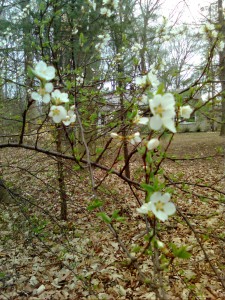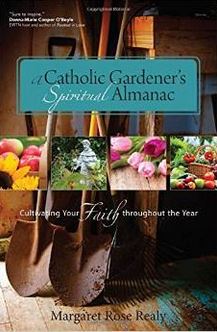“It’s spring fever. That is what the name of it is. And when you’ve got it, you want–oh, you don’t quite know what it is you do want, but it just fairly makes your heart ache, you want it so!”
— Mark Twain
It’s never just happiness and smiles.
Here it is, a glorious Springtime in Michigan. The first flowers are bursting forth, frothing explosions of yellow and purple and white gussying up the brown earth, not unlike stars which splash exuberant wonder across the night sky. Everywhere there is great beauty and mystery and hope.
And sorrow.
 I am always surprised by my bifurcated happy-sad reaction to the first green leaves, the first dancing daffodils. I’m not even sure where my melancholy comes from.
I am always surprised by my bifurcated happy-sad reaction to the first green leaves, the first dancing daffodils. I’m not even sure where my melancholy comes from.
Perhaps it’s this: I love nature, love the peeping frogs, their thin voices blending into a cacophony of rubber tones in the pond beside the office. I love the gnarled tree and the puffball mushroom that pushes through the wet mud under a decaying log in the yard. But these things are not enough. Vapid caricatures of themselves, they’re like worn photographs of a still greater beauty—a beauty that will last more than a day.
Perhaps my malaise is the result of increasing years, when the passage of time is sensed more keenly. Not to be morose, but Spring is a reminder of Summer, which is a harbinger of Fall…. These lovely things—baby birds that wait, gape-mouthed, for a tasty morsel; dappled fawns that nurse at the nipple of the patient doe; crocuses that smile for just a day, before becoming lunch for a rabbit—all of these delicate things begin to die as soon as they are born.
St. Thomas Aquinas, writing in the Summa Theologica, calls beauty “a kind of knowledge.” He evaluates the world in terms of three characteristics: wholeness, balance and radiance. To the extent that a thing possesses these three conditions, it is beautiful.
So beauty is fleeting. Flowers fade, mushrooms release their spores and return to the earth. Soft skin wrinkles in the sun. Flowers die quickly in the vase, almost as quickly in the garden. And after having survived a few seasons, remembering the hurt of both small and profound losses, one finds detachment preferable to pain.
Only God is unchanging, and it is toward His ineffable beauty that all these things point. In the words of St. Augustine, “Thou hast formed us for Thyself, and our hearts are restless ‘til they find rest in Thee.”











